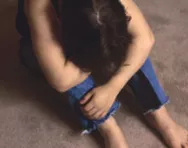Important update from TheSchoolRun
For the past 13 years, TheSchoolRun has been run by a small team of mums working from home, dedicated to providing quality educational resources to primary school parents. Unfortunately, rising supplier costs and falling revenue have made it impossible for us to continue operating, and we’ve had to make the difficult decision to close. The good news: We’ve arranged for another educational provider to take over many of our resources. These will be hosted on a new portal, where the content will be updated and expanded to support your child’s learning.
What this means for subscribers:
- Your subscription is still active, and for now, you can keep using the website as normal — just log in with your usual details to access all our articles and resources*.
- In a few months, all resources will move to the new portal. You’ll continue to have access there until your subscription ends. We’ll send you full details nearer the time.
- As a thank you for your support, we’ll also be sending you 16 primary school eBooks (worth £108.84) to download and keep.
A few changes to be aware of:
- The Learning Journey weekly email has ended, but your child’s plan will still be updated on your dashboard each Monday. Just log in to see the recommended worksheets.
- The 11+ weekly emails have now ended. We sent you all the remaining emails in the series at the end of March — please check your inbox (and spam folder) if you haven’t seen them. You can also follow the full programme here: 11+ Learning Journey.
If you have any questions, please contact us at [email protected]. Thank you for being part of our journey it’s been a privilege to support your family’s learning.
*If you need to reset your password, it will still work as usual. Please check your spam folder if the reset email doesn’t appear in your inbox.
What to do if your child is excluded from school

Being told that your child has been excluded from school is news that no parent wants to hear. Schools should be doing all they can to avoid exclusion, but sometimes the head teacher has to make the decision that it's the only option.
School exclusions are fixed term or permanent, and parents need to be contacted immediately, with a letter of confirmation to follow. The letter should give the reasons for the exclusion as well as explaining what steps have been taken to try to avoid resorting to exclusion.


Boost Your Child's Learning Today!
- Start your child on a tailored learning programme
- Get weekly English & maths resources sent direct to your inbox
- Keep your child's learning on track
Your responsibilities if your child is excluded
If your child is excluded either permanently or for a fixed period, you must make sure they are not seen in a public place in the first five school days, unless there's a good reason (such as going to a medical appointment).
If you child is found in a public place, you could be prosecuted and fined £60.
Appealing against an exclusion
When your child is excluded from school, the letter you receive should provide details of how to challenge their exclusion.
The first thing to do is make sure you're aware of what official guidelines say about exclusion and about how you can support your child. You can obtain copies of the exclusion guidelines from your child's school, the local council, or the Government's website.
If your child is on a fixed term exclusion, you can ask the school's governing body to overturn the headteacher's decision if they are excluded for more than five school days, or if they will miss a public exam or National Curriculum test (including SATs) during their exclusion.
You can also ask for the decision to be overturned if the exclusion means your child will have been excluded for more than 15 days in one term.
If your child is excluded for under five school days, the governors can't overrule the exclusion, but you can ask them to hear your views (usually in writing) and keep them on your child's file.
If your child is permanently excluded, you'll be invited to a review meeting with the governors within 15 school days.
If the governors don't overturn the decision, you can ask for an independent review by your local council (or the academy trust, if the school is an academy).
In either case, you are entitled to attend the governing body’s review meeting, or send a representative. An officer of the local education authority may also be present, especially in permanent exclusion cases.
What to do if you're still not happy with your child's exclusion
If, after independent review, you still want to challenge your child's exclusion – for example, if it was unlawful (e.g. the length of exclusion wasn't specified, or you weren't notified in writing) – you can ask the Local Government Ombudsman (or the Education Funding Agency, for free schools and academies) to look at whether your case was handled properly.
They can't overturn your child's exclusion.
Excluding children with special educational needs (SEN)
Children with SEN may be particularly vulnerable to exclusion, as their additional needs can lead to challenging behaviour.
Schools are advised to do everything they can to avoid permanently excluding children with SEN. If a child is at risk of exclusion, they should involve you and other people involved in their care (such as a social worker or educational psychologist) in working out what additional support or alternative placement might be required.
This might include an interim or emergency review of their Education, Health and Care Plan (EHCP).
It's helpful to keep copies of all documentation concerning your child's SEN, such as doctors' letters, test results and professional reports, as this will help you demonstrate what support your child needs to stay in school.
If you think your child has been discriminated against because of their additional needs (or for another reason, such as race, religion, disability or sexuality) you can make a claim to a court or tribunal. The Equality Advisory Support Service can help.
Your child's education after exclusion
If your child is on a fixed term exclusion, for the first five school days, their school must set work for them to do at home, and mark this work.
If they're excluded permanently or for more than five school days, the school (in the case of fixed term exclusion) or local authority (for permanent exclusion) must provide a suitable full-time education from the sixth school day.
This could be:
- A pupil referral unit (PRU): an establishment for children who are unable to attend mainstream school because of their behaviour, illness, or other reasons.
- Home tutoring.
- Online studying (although this is rarely an option for primary school children).
- A managed move, where the child transfers to a new school for a fresh start. This is voluntary and can only be arranged with consent from everyone involved, including parents.
You might, alternatively, decide to home educate your child, but this can't be enforced on you.
For further help
Visit the Communities Empowerment Network's (CEN) where you will find information and support if your child is excluded.








